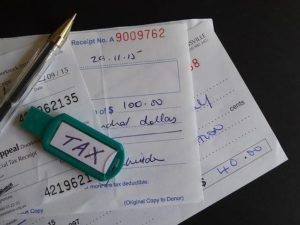The Strong Defense
You Deserve
Write This Down: The Facts Of Florida’s Laws Against Forgery

Forgery in Florida is a serious offense. Many Floridians have been victimized by forgery crimes, and the cost to Floridians of forgery runs into the tens of millions of dollars each year. What follows is a brief overview of the laws prohibiting forgery in Florida.
History
Despite the public misconception, the history of the term “forgery” has nothing to do with a blacksmith’s forge. “Forgery” comes to Modern English via the Anglo-French verb forger, which means the act of falsifying.
Forgery has long been a part of English common law, and today it is a crime in every American state and federal jurisdiction. It entered Federal law as part of the Crimes Act of 1790 and has remained on the books in some form since then.
Although many people think of forgery in the sense of reproducing a work of art and falsely claiming it to be the original, the vast majority of forgery convictions in the United States involve falsely altering legal documents.
Basics
In general, forgery is a white collar crime of
- falsely
- making a material alteration of a legal instrument
- with the specific intent of defrauding another.
Most jurisdictions have a requirement that the defendant must have known that he or she didn’t have the authority to alter the document.
In Florida, the elements of the crime of forgery are quite specific. A person who falsely
- makes,
- alters,
- forges, or
- counterfeits
one of the following documents:
- public record, or
- a certificate, return or attestation of any clerk or register of a court, public register, notary public, town clerk or any public officer in a matter where the record may be used as legal proof,
- charter,
- deed,
- will,
- testament,
- bond, or writing obligatory,
- letter of attorney,
- policy of insurance,
- bill of lading,
- bill of exchange or promissory note, or
- an order, acquittance, or discharge for money or other property, or
- an acceptance of a bill of exchange or promissory note for the payment of money, or
- any receipt for money, goods or other property, or
- any passage ticket, pass or other evidence of transportation issued by a common carrier
and doing so with the intent to defraud or injure another person is guilty of the crime of forgery.
Although the defendant must have acted with the intent to injure another person, no other person needs to have been injured to sustain a conviction of forgery.
Uttering A Forged Instrument
Florida law makes uttering a forged instrument a separate crime. One who utters or publishes a forged document listed in the statute with knowledge that the document is forged and with the intent to injure another person is guilty of uttering a forged instrument.
Penalties
A conviction of both forgery and uttering a forged instrument are third degree felonies, which are punishable by up to five years in prison, up to five years of probation, and a fine of up to $5,000.
Defenses
The most common defense to forgery in Florida is claiming lack of intent to harm another person. Also used is a defense that the defendant was unaware that the document was forged, having received it from another person already altered.


